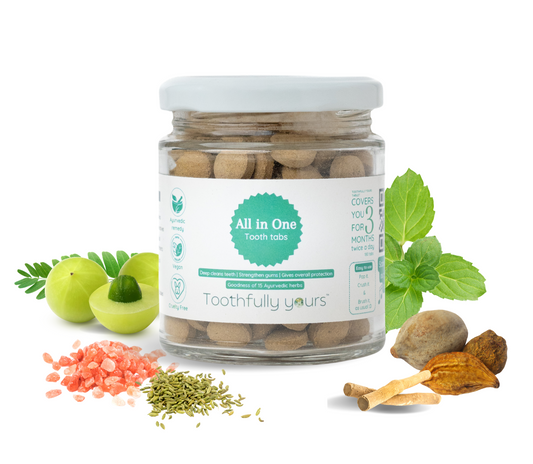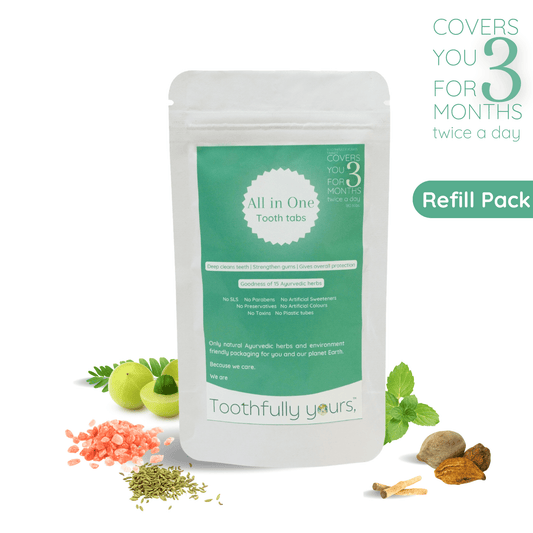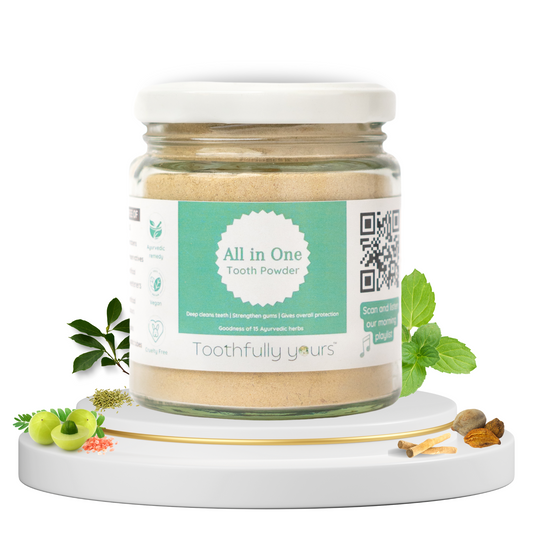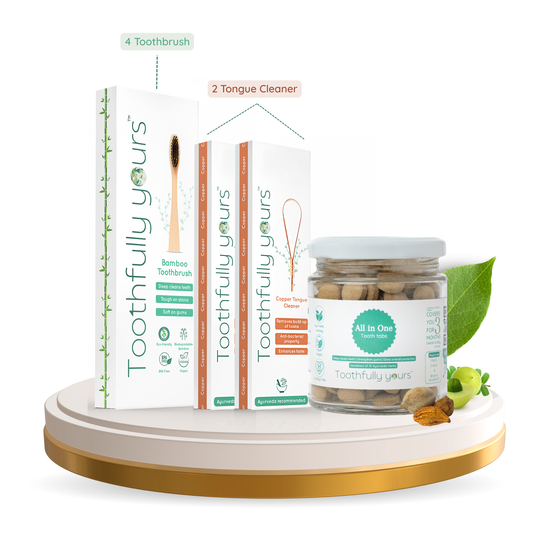
The Hidden Risks: How Toothpaste Chemicals Can Impact Pregnancy
Pregnancy is a time of heightened awareness regarding health and safety, with expectant mothers diligently monitoring their diet, lifestyle, and skincare products. However, one aspect often overlooked is the potential risks associated with conventional toothpaste ingredients. This article explores the chemicals found in toothpaste that may pose risks during pregnancy, their side effects, and safer alternatives for maintaining oral health.
Chemicals to Avoid in Toothpaste During Pregnancy:
- Sodium Lauryl Sulfate (SLS): SLS is a foaming agent commonly found in toothpaste, but studies have linked it to hormonal disruption and irritation. It could be contaminated by 1,4 -dioxane, an impurity, which could cause lots of complications. See what MadeSafe has to say about it. During pregnancy, hormonal changes make women more susceptible to these effects, potentially exacerbating oral sensitivity and discomfort.
- Triclosan: Triclosan is an antimicrobial agent added to toothpaste to prevent bacterial growth. However, research suggests that exposure to triclosan may disrupt hormone function and contribute to antibiotic resistance. Pregnant women are advised to avoid products containing triclosan to minimize potential risks to fetal development. Almost all toothpaste brands have removed this chemical from their ingredient list (as of 2024) but still it is a good idea to check for this ingredient.
- Artificial Colors, Sweeteners and Flavors: Synthetic colors derived from petroleum are added to toothpaste to enhance visual appeal. Artificial colors are petroleum products added to toothpaste to enhance visual appeal of the toothpastes and are written in codes on the packaging like:
CI 16035(Red 40), CI 12490 (Red 5), CI 45430 (Red 3), CI 74160 (Pigment Blue 15). Red 3 has been found to cause cancer in animals, Red 40 has been found to be contaminated with benzidine or other carcinogens and additionally Red 40 along with Blue 1 cause hypersensitivity reactions(link).
Artificial flavors used to mimic taste of an ingredients, are written as “flavor” on the ingredient list and brands are not liable to define what that contains and how it is made as it is a trade secret. Although there have been several studies which link artificial flavors being genotoxic and cytotoxic(link) in rodents, it's better to avoid them rather than keep hoping this is absolutely safe for us. Additionally, Artificial Sweeteners like Saccharin and Aspartame are added to bring sweet taste to the composition, which are shown to induce weight gain and are highly debatable when it comes to its use as a safe ingredient(link).
- Fluoride: While fluoride is commonly added to toothpaste for its cavity-fighting properties, excessive fluoride exposure during pregnancy may pose risks to fetal development. High fluoride intake has been linked to skeletal fluorosis and neurodevelopmental (study) disorders in children, prompting caution among expectant mothers.
- Parabens: Parabens are preservatives used to prolong the shelf life of personal care products, including toothpaste. However, research has raised concerns about their potential estrogenic activity and endocrine-disrupting effects, which may pose risks during pregnancy. link
Safer Alternatives for Pregnant Women:
- Natural oral care products: Opt for natural or organic tooth powders or tooth tabs with formulations that are free from artificial colors, flavors, and preservatives. Look for products that contain herbs and minerals for safe and effective cleaning.
- Fluoride-Free Options: Consider using fluoride-free tooth powders / tooth tabs.
- Herbal Remedies: Incorporate herbal remedies such as neem, clove, rock salt, babool and triphala into your oral care routine. These natural ingredients have antimicrobial and anti-inflammatory properties that can help maintain oral hygiene without the risks associated with conventional toothpaste chemicals. All these herbs and minerals can be found in our Ayurvedic tooth tabs, do check them out here.

EDITOR’S PICK
Oral Care routine your smile deserves.
Ayurveda's remedies with highly effective herbs and nothing else.
Check Now →Ayurveda offers several recommendations for maintaining oral hygiene during pregnancy:
- Oil Pulling: This traditional Ayurvedic practice involves swishing oil (usually sesame or coconut oil) in the mouth for 10-20 minutes to remove toxins and promote oral health. Oil pulling is believed to reduce plaque, prevent cavities, and alleviate bad breath.
- Herbal oral care products: Ayurvedic product formulations contain natural ingredients such as neem, miswak, and licorice, which have antibacterial and anti-inflammatory properties. These herbs are gentle on the gums and teeth and can help maintain oral hygiene during pregnancy.
- Gargling with Herbal Decoctions: Gargling with herbal decoctions made from herbs like triphala, turmeric, and holy basil (tulsi) can help cleanse the mouth, reduce inflammation, and promote gum health. These herbal remedies have antimicrobial properties and can support oral hygiene during pregnancy.
- Tongue Scraping: Ayurveda recommends tongue scraping as a daily practice to remove toxins and bacteria accumulated on the tongue. Using a copper tongue scraper, gently scrape the tongue from back to front to improve oral hygiene and prevent bad breath.
- Healthy Diet: Ayurveda emphasizes the importance of a balanced diet rich in fresh fruits, vegetables, whole grains, and lean proteins for overall health, including oral health during pregnancy. Avoiding sugary and processed foods can help prevent dental issues such as cavities and gum disease.
- Regular Dental Check-ups: Pregnant women should continue to prioritize regular dental check-ups and cleanings during pregnancy. Professional dental care can help identify and address any oral health concerns early on and ensure optimal oral hygiene throughout pregnancy.
It's essential for pregnant women to consult with their healthcare providers, including Ayurvedic practitioners and dentists, before implementing any new oral hygiene practices or herbal remedies during pregnancy. Individualised recommendations based on specific health needs and considerations can help ensure a safe and healthy pregnancy.
FAQs:
What is the best toothpaste when pregnant?
Best tooth product when pregnant is one which helps you maintain your oral hygiene, and does not expose you to any toxic chemicals.
For finding the best toothpaste, the most important part is to check the ingredient list. Ingredient is the king. Avoid ingredients like Sodium Lauryl Sulphate, Potassium Nitrate, Carrageenan, Titanium Dioxide and others which are toxins and could aggravate the condition.
One can always take the Ayurveda route and try our All in One Tooth Tabs, which made using 15 Ayurvedic herbs and minerals to give complete protection to your teeth and gums and fight bad breath. Check this guide on how to use tooth tablets?
Takeaway:
Maintaining optimal oral health during pregnancy is essential for both maternal and fetal well-being. However, expectant mothers should exercise caution when selecting oral care products to avoid potential risks associated with harmful chemicals found in conventional toothpaste. By choosing safer alternatives and prioritizing natural ingredients, pregnant women can safeguard their oral health while minimizing potential risks to their developing baby. As always, consult with a dentist if you are observing severe dental problems.

Oral Care routine your smile deserves.
Ayurveda's remedies with highly effective herbs and nothing else.
Check Now →




